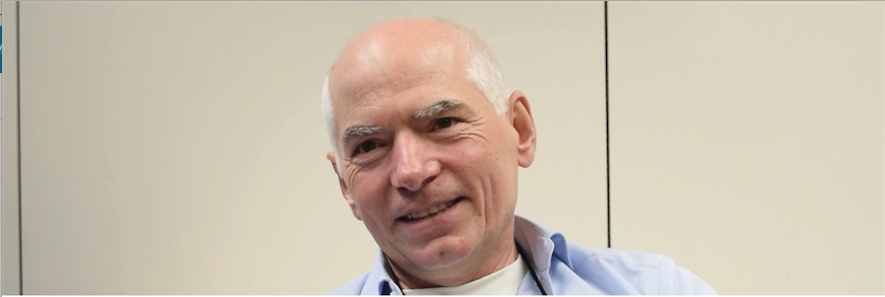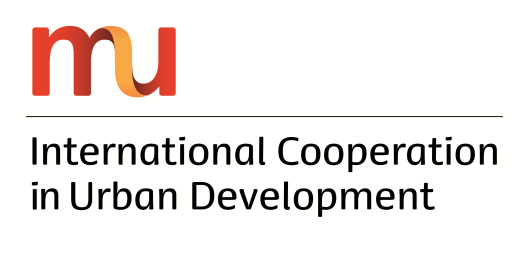MU students can expect outstanding senior lecturers to teach individual course modules in the fields of urban development and international cooperation. This allows them the opportunity to engage in dynamic conversations and exercises with highly reputable scholars or renowned experts. They include university professors, authors of fundamental reading in the subject, and experienced practitioners in their specialised fields.

”"Power is pretty much at the heart of everything that someone who is interested in developing a critical discourse about planning would need to take into consideration."
Shanti PillaiLecturer "Globalisation and its Discontents"
Shanti Pillai
Shanti is a scholar, artist, and writer. She holds a BA in Anthropology and International Relations from Stanford University (1989), an MA in Asian Studies from the University of California at Berkeley (1990), and a PhD in Performance Studies from New York University (2005). Over the course of her career, she has taught students from thirty countries at institutions on four continents. She is currently Assistant Professor of Theatre Arts at California State University at Long Beach. She offers courses on cultural policy and urban development, issues of race, gender and class identities, the performance practices of Asia, as well as studio dance and physical training for actors. Her writing has appeared in The Drama Review, Women and Performance, Dance Research Journal, Conversations Across the Field of Dance Studies, Trialog, and the blog of the Michigan Quarterly. As a creator and performer, her work has appeared at the Teatro Trianón and Fundacíon Ludwig in Havana, Cuba, the University of California at Los Angeles, Brown University, and the University of Southern California. In 2017 Shanti was awarded a Fulbright Research Grant for her project that focuses on women artists’ contributions to contemporary performance in India across the genres of theater, dance, digital media, and performance art. She explores how these innovators develop new aesthetic paradigms, facilitate communities of young artists and audiences through teaching and institution building, and propose alternative perspectives.

”“Who is the agent in this process? What decisions are made? Whose initiative is it? Who is benefiting? These are real questions that are an important start or warning for our own practice.”
Yasar Adnan AdanaliLecturer "Housing 2.0: Affordable, Ecological, Social"
Yaşar Adnan Adanalı
Yaşar Adnan Adanalı is an Istanbul-based urbanist, researcher and lecturer. He has a BA on social and political sciences from Sabanci University (Istanbul) and a master’s degree on development and planning: social development practice from the Development Planning Unit, University College London (UCL). His PhD research in Habitat Unit is on relations of spatial production and democratisation processes in Istanbul. From 2010 to 2012, Yasar worked as a researcher on a refugee camp improvement project of UNRWA. At the moment he teaches a participatory planning course and housing studio at TU Darmstadt as a visiting scholar. He is a voluntary member of One Hope Association (Istanbul), a rights-based NGO working with informal settlements in Turkey. Yasar is a founding member of Beyond Istanbul, a transdisciplinary, demand-responsive urban institute, focused on issues of spatial justice in Istanbul and beyond. He initiated and coordinates several urban blogs and websites, including his personal blogs Reclaim Istanbul and Happy City.

”"5 billion people will be living in informality in informal settlements. If you flip that coin, 5 billion people are building our cities of tomorrow. Then you are not thinking of them as poor and helpless people, instead you think of them as agents of change."
Aditya KumarLecturer "Slum Upgrading"
Aditya Kumar
Trained as an architect and planner from India and Los Angeles, Aditya Kumar brings together 15 years of developmental, post-disaster and post-conflict experience. He is now the Executive Director of Development Action Group (DAG), a leading organization dealing with informality, housing and right to the city based in South Africa. His professional experience includes working as a Director for the Community Organization Resource Centre (CORC), affiliated with Slum Dwellers International (SDI), as well as a Head of Design and Planning for Nahr El Bared Palestinian Camp Reconstruction Project with the United Nations in Lebanon. His work focuses on multi-stakeholder partnerships between local communities, CBOs, government bodies, academic institutions and international NGOs, with a key focus on strengthening community participation and action. Click here for the full interview with Aditya.

”"Only when you let go of your values, of your work, can you open space for other contributions, other perspectives, to make something better."
Lauren UgurLecturer "Project Management"
Lauren Ugur
Prof. Dr. Lauren Ugur is an urban development and management professional. She holds a PhD in Urban Sociology and a MSc in International Cooperation and Urban Development both from Darmstadt University of Technology, Germany, as well as a first-class Master of Business Administration (MBA) from the University of South Australia. Professionally, Lauren holds a Professorship in International Tourism Management at Heilbronn University of Applied Sciences. She draws on her diverse background, focusing her research interests on the environmental, social and institutional complexity that determines how organizations, public and private, are able to deliver integrated planning interventions to address contemporary urban issues. Prior to this appointment, Lauren held a Professorship in Tourism and Event Management at Frankfurt International School of Management (2014-2017) and worked as the Consortium Manager for the Mundus Urbano programme (2009-2014). Click here for the blog entry on the Project Management class that she teaches in MU.

”"I have never seen an informal settlement where people waste a square centimeter of land. People use space not only efficiently from an economic point of view, but also rom a social point of view."
Geoffrey PayneLecturer "Urban Land Management"
Geoffrey Payne
Geoffrey has more than 40 years of international experience as a consultant, researcher and teacher in urban development, housing policy, land management, land tenure and project design issues in developing countries. He established Geoffrey Payne & Associates (GPA) in 1995 and has worked on urban housing project design and slum upgrading projects, reviews of regulatory frameworks for urban planning, urban housing sector reviews, assessments of policy options and project evaluation in all regions of the world. A central theme involves building local capacity to stimulate local social and economic development and reduce urban poverty. The UN-Habitat released his UN Global Lecture on land tenure and property rights. Many other materials can be downloaded at gpa.org.uk.

”"Working in development projects was (for me) an opportunity to go back and to re-think technical norms and standards from the origin and we felt ourselves responsible for the implementation."
Claus HemkerLecturer "Disaster Risk Management"
Claus Hemker
Claus is an architect, with a specialisation in disaster prevention and reconstruction tasks. He is the principal consultant for planning and building in development countries, housing reconstruction, and emergency shelter projects for Caritas Germany. Having lived and practiced for several years overseas, he possesses more than 30 years of experience with partner-oriented, community-based (re)construction projects after disasters in diverse contexts. His work involves developing standard procedures for sustainable (re)construction project design and appropriate project management, together with donors, project managers, engineers and communities during regular projects visits. In Mundus Urbano, Claus Hemker teaches the course on Disaster Risk Management and Reconstruction Project Management.

”"The dynamics of cities are really so very complex that you will always have to approach the problem from multiple perspectives."
Pratyush ShankarLecturer "Urban Heritage"
Pratyush Shankar
Pratyush Shankar is an Alexander Von Humboldt fellow at the University of Bonn, in Germany, and an Associate Professor in Architecture at CEPT University, Ahmedabad. He is an Urban Historian and is interested in the question of cities and their future possibilities. He has widely published and taught for many years. His recent book titled Himalayan Cities, by Niyogi Publishers, New Delhi, is an attempt to theorize the complex city form in the Himalayan landscape. His present research focuses on the role of landscape condition in shaping the urban history of South Asia. Pratyush has also a design practice and was the recipient of the National Architect of the Year JK award for the design of residence in 2014-2015. He is an avid hiker and spends his time between the Himalayas, Germany, and India.

”
Gül TuçaltanLecturer "Urbanization and Infrastructures: Entanglement of Power, Politics, Technology and Space"
Gül Tuçaltan
As a city and regional planner from Turkey, Gül Tuçaltan (1984, Ankara) obtained her Bachelor’s degree in 2006 from the Middle East Technical University (METU), Ankara, Turkey. She specialized in the field of urban and environmental policy with M.S. degrees from METU and New Jersey Institute of Technology, Newark, New Jersey. In 2017, she completed her Ph.D. at the Department of Human Geography and Spatial Planning at Utrecht University in the field of urban governance and political ecology. Prior to her doctoral studies, she worked in several professional and academic institutions such as Utrecht University, Darmstadt University of Technology (German Research Foundation-DFG scholarship holder), the United Nations Industrial Development Organization (UNIDO), the Regional Environmental Center Turkey and Middle East Technical University. Currently, she is the national project coordinator and the lead of the knowledge generation component of the RESLOG-Turkey project. She pursues her research and teaching activities as part of the Ecology Collective Association. Her main professional and research interests focus on urban and infrastructure governance; urban political ecology, the production of socio-ecological injustice, processes of (urban) social exclusion and inclusion.

